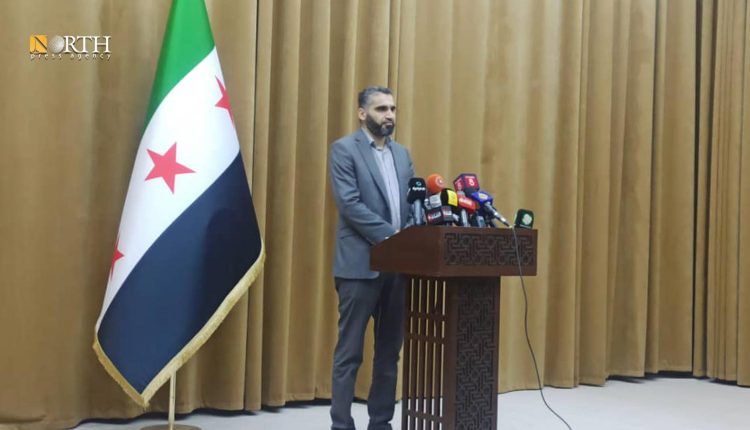Syrian Government Announces Power Grid Repairs in Northeast Amid Coordination with AANES
By Kardo Roj
DAMASCUS, Syria (North Press) – Syria’s Ministry of Oil has begun maintenance work on power plants in the country’s northeast, according to Minister of Electricity Omar Shaqrouq. Speaking at a press conference in Damascus on Wednesday, Shaqrouq outlined government efforts to restore electricity transmission lines in areas east of the Euphrates.
The announcement comes amid ongoing discussions between Damascus and the Autonomous Administration of North and East Syria (AANES) on energy and infrastructure coordination. While details of the cooperation remain limited, Shaqrouq emphasized the government’s commitment to ensuring “fair distribution of electricity across all Syrian provinces.”
Shaqrouq noted that his ministry has devised a plan to rehabilitate the electricity grid in the region, where infrastructure has suffered from years of conflict and insufficient maintenance. “Several power lines are being reactivated to improve energy supply, particularly in cities that have experienced prolonged outages,” he said.
While much of Syria’s electricity infrastructure is state-run, large portions of the northeast are administered by AANES, with energy production and distribution partially managed by local authorities. Cooperation in electricity restoration has remained a point of contention, particularly in areas where both Damascus and AANES claim jurisdiction.
Shaqrouq also referenced a recent agreement between Syria’s transitional president, Ahmad al-Sharaa, and Syrian Democratic Forces (SDF) Commander-in-Chief Mazloum Abdi. While he did not elaborate on its terms, the mention suggests that discussions over infrastructure management, including power supply, could be part of ongoing negotiations between the central government and AANES.
Despite these efforts, electricity shortages remain a persistent issue across Syria, exacerbated by fuel scarcity and deteriorating infrastructure. Many areas continue to rely on local generators due to unreliable national grid access.
Though the government has signaled intentions to repair power lines, logistical and political challenges remain. AANES has previously voiced concerns over equitable electricity distribution, arguing that northeastern Syria, home to much of the country’s oil resources, does not receive proportional benefits from state-run energy projects.
Additionally, ongoing economic difficulties, including international sanctions on Syria and limited state revenues, have hampered large-scale infrastructure projects. Observers note that any significant improvement in electricity supply will likely require long-term investment and stable cooperation between Damascus and AANES.
As maintenance work progresses, the effectiveness of these efforts will depend on the extent of government resources and the ability to maintain political coordination in the region.

